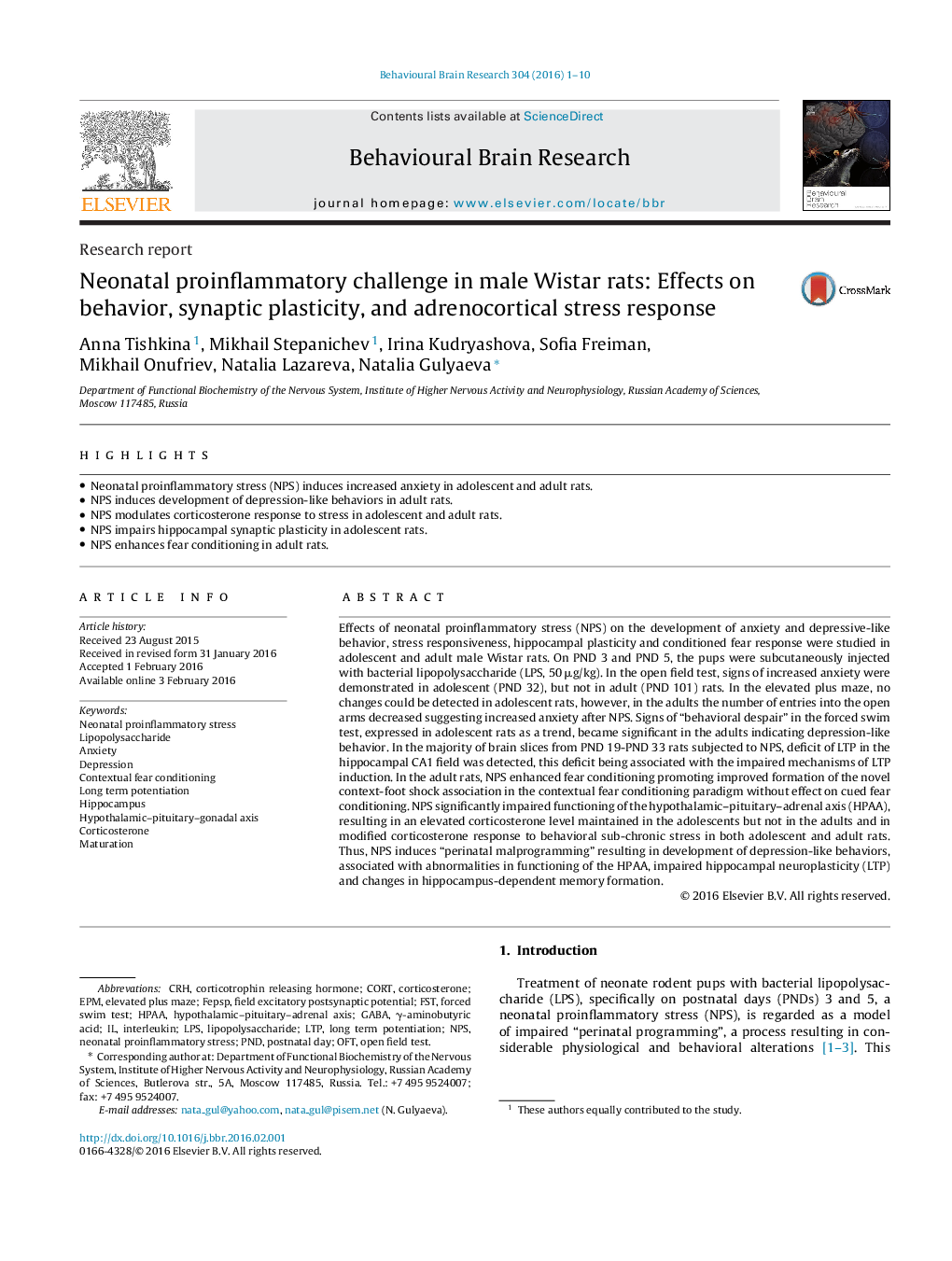| کد مقاله | کد نشریه | سال انتشار | مقاله انگلیسی | نسخه تمام متن |
|---|---|---|---|---|
| 4312176 | 1612929 | 2016 | 10 صفحه PDF | دانلود رایگان |
• Neonatal proinflammatory stress (NPS) induces increased anxiety in adolescent and adult rats.
• NPS induces development of depression-like behaviors in adult rats.
• NPS modulates corticosterone response to stress in adolescent and adult rats.
• NPS impairs hippocampal synaptic plasticity in adolescent rats.
• NPS enhances fear conditioning in adult rats.
Effects of neonatal proinflammatory stress (NPS) on the development of anxiety and depressive-like behavior, stress responsiveness, hippocampal plasticity and conditioned fear response were studied in adolescent and adult male Wistar rats. On PND 3 and PND 5, the pups were subcutaneously injected with bacterial lipopolysaccharide (LPS, 50 μg/kg). In the open field test, signs of increased anxiety were demonstrated in adolescent (PND 32), but not in adult (PND 101) rats. In the elevated plus maze, no changes could be detected in adolescent rats, however, in the adults the number of entries into the open arms decreased suggesting increased anxiety after NPS. Signs of “behavioral despair” in the forced swim test, expressed in adolescent rats as a trend, became significant in the adults indicating depression-like behavior. In the majority of brain slices from PND 19-PND 33 rats subjected to NPS, deficit of LTP in the hippocampal CA1 field was detected, this deficit being associated with the impaired mechanisms of LTP induction. In the adult rats, NPS enhanced fear conditioning promoting improved formation of the novel context-foot shock association in the contextual fear conditioning paradigm without effect on cued fear conditioning. NPS significantly impaired functioning of the hypothalamic–pituitary–adrenal axis (HPAA), resulting in an elevated corticosterone level maintained in the adolescents but not in the adults and in modified corticosterone response to behavioral sub-chronic stress in both adolescent and adult rats. Thus, NPS induces “perinatal malprogramming” resulting in development of depression-like behaviors, associated with abnormalities in functioning of the HPAA, impaired hippocampal neuroplasticity (LTP) and changes in hippocampus-dependent memory formation.
Journal: Behavioural Brain Research - Volume 304, 1 May 2016, Pages 1–10
